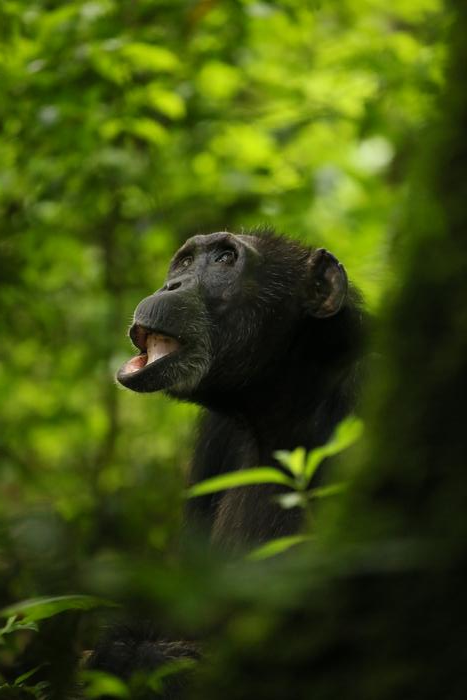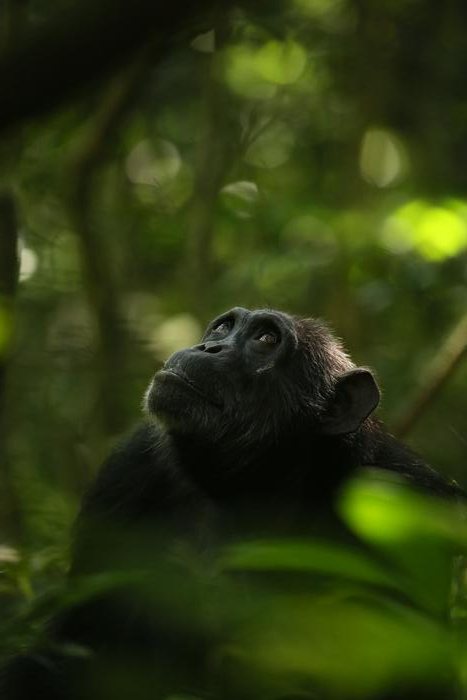For the first time, female chimpanzees have been seen surviving long after they have ceased to be able to reproduce – they had gone through menopause. Until recently, menopause was thought to be a uniquely human phenomenon, not seen even in our closest relatives. The discovery not only disproves that and raises the possibility menopause evolved much earlier than we thought, it also calls into question the favored answer to the question of why menopause happens at all.
According to a crude version of evolutionary theory, individuals exist purely to reproduce. Once they stop being able to do that there is no point to their existence, the argument goes, and their survival represents an anomaly. This model is more popular with people who never got past high school biology than practicing scientists, but that doesn’t stop it seeping into many debates and assumptions.
Like homosexuality, menopause refutes this view. Were it right, evolution should favor those who keep on being able to reproduce at least until they die, with perhaps a few years grace to raise their last child. When menopause was only known to occur in humans, however, it could be waived away. Then menopause was observed in a few toothed whale species and now chimpanzees in Ngogo, Uganda have been added to the list.
Dr Brian Wood of the University of California, Los Angeles and colleagues studied the Ngogo chimpanzees using a measure called post-reproductive representation (PrR); the proportion of the average adult life span where the population has lost the capacity to reproduce. The team calculated a value of 0.2 for the female Ngogo population by testing urine from 66 females for hormonal changes associated with declining fertility. Although not as high as for humans (0.3-0.47) or several whale species, the figure is much closer to those than the values seen in most mammals (0.04 or below).

Post-reproductive chimpanzee Garbo may want to be alone, but it could be her role in the troop that is responsible for her unusual status for a mammal.
Image credit: Kevin Langergraber, Arizona State University
Like humans, female chimpanzees typically experience menopause around 50, but few reach that age in the wild, let alone survive long after it. At least, that is the case for other well-studied populations; the Ngogo females appear to be unusually long-lived, many surviving into their 50s and 60s after having their last offspring in their mid-40s.
It was already known that women’s long lives after menopause are not just a product of recent medical and social advances. In an article accompanying the chimpanzee study, Professor Michael Cant of the University of Exeter notes that among the Hadza hunter-gatherers, the average age at which women have their last baby is 41, and most live more than 20 years thereafter. That’s more than enough time for the child to become independent.
Wood and co-authors consider the possibility the Ngogo chimps are experiencing a brief period of unusual safety. Notably, leopards were wiped out in the area in the 1960s and the Ngogo population subsequently won a territorial war with some neighbors, expanding their access to food. If this theory holds true, perhaps menopause became common in humans after we started living longer.
Alternatively, it may be the Ngogo who are in a more natural state, and the shorter-lived chimpanzees of other regions have suffered from humans destroying their habitats and introducing diseases.

Old age isn’t so bad when you consider the alternative, post-menopausal chimp Leonora may be thinking.
Image credit: Kevin Langergraber, Arizona State University
The conventional justification for menopause in humans, which has also been applied to orcas, is called the “grandmother hypothesis”. It holds that once the capacity to reproduce is lost, energy is redirected to raising grandchildren. In species where childhood is long and a good start in life is important, this may be the most effective way to ensure the long-term transmission of your genes.
Unfortunately for this explanation, older chimpanzees don’t provide baby-sitting services for their grandchildren. Indeed, their daughters usually move to a different troop before breeding. Although many older females share a troop with their son’s offspring, even the fathers don’t do much child-rearing, let alone the grandmothers. Unlike bonobos, chimps don’t act as matchmakers for their sons. Something more obscure is going on among the Ngogo chimps, and therefore possibly in humans and whales as well.
One hint may lie in the fact that when females arrive in a new troop at the start of adulthood, they are unrelated to its other members. The longer they live, the closer their genetic connection to the group, something that is also true, although through a different breeding process, in at least two of the whale species known to undergo menopause. Potentially, past a certain age older females are sufficiently genetically linked to the younger members of the troop that it benefits them not to compete for resources, or to be able to focus on passing on their wisdom and experience.
Whatever the answer, the discovery “Highlights the power of difficult long-term field studies—often run on small budgets and at constant risk of closure—to transform fundamental understanding of human biology and behavior,” Cant writes.
The study is published in Science.
Source Link: Wild Chimpanzees Found To Go Through Menopause, Joining An Elite Club